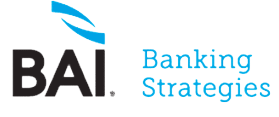Citizens Bank, headquartered in Providence Rhode Island, 50 miles south of Boston, is the 13th largest bank in the US with $158.6 billion in assets. Beyond its physical locations in 11 states, it is using digital platforms to reach customers across the nation loans and savings products.
Since undertaking an IPO spinout from RBS in 2014, Citizens Bank has moved quickly to develop digital capability across the bank including peer-to-peer (P2P), trade finance, robo investment advisory, digital small business lending and an entirely digital savings bank, Citizens Access. In its drive to digital, Citizens is working with fintech partners, developing its own solutions and sponsoring hackathons.
“We’re doing quite a bit in digital,” says Charles Beyrouthy, assistant vice-president at Citizens. “We have quite a few different programs including partnerships with fintechs and fintech initiatives.”
The bank wants to be part of customers’ lives in a way they don’t have to think about, he added. It is working on artificial intelligence to understand customers’ spending habits so it can suggest ways to save for a specific objective, like a vacation, by setting aside a reasonable amount toward that goal on each payday.
The emphasis is on making it easy for customers by presenting information they can act on rather than leaving them to research to see what is available.
“Providing capabilities is not enough; we have to provide them in a way that is intuitive.”
To understand their customers better, bank staff get beyond data to spend time with clients.
“That is often under-done by tech companies and banks,” says Beyrouthy.
In his strategy role, Beyrouthy works between fintechs and the line of business (LOB) organisations in the bank.
“We do quite a bit of due diligence and work with folks in different verticals,” he explains. “We think about how the technology could work — the LOBs are the ones who are dealing with the customers, they understand who the customers are and how the customers could use the technology. Our job is to empower the LOBs in terms of seeing the value of the technology.”
To get out on the cutting edge, the bank is reaching out to local universities, meeting with startups and sponsoring hackathons.
In July 2018, Citizens hosted a hackathon and brought in 150 innovators in different technologies and tech enthusiasts to innovate around four themes:
- 360-degree engagement with customers by consolidating all the customer information the bank has.
- Liquidity crystal ball — what tools can Citizens provide to help customers understand their cashflow challenges.
- Artificial intelligence (AI) and digital engagement — how can Citizens leverage AI platforms to increase its response rate and support capabilities to its customers.
- Social banking — how can Citizens better deliver more personalised products to its customers.
“The idea was for us to get insight into initiatives at MIT, Harvard and U Mass and see how, or if, they could be applied to the bank, how they could help us innovate and think differently about the future of banking. From that point we started talking about proofs of concept and we have had some great collaborations.”
Working with fintechs, especially new fintechs, presents some challenges for a bank in due diligence – especially around security and compliance but also the financial stability of the fintech.
“We have a cybersecurity team that looks into the risk,” Beyrouthy says, “and we are launching a broader initiative to work with fintechs that aren’t product-ready but might be in the future.”
Fintechs can offer a bank some new approaches to customer experience, he adds, including AI, chat bots, analytics and personalisation.
“In the past six months we have talked to 200-plus start-ups; we are committed to really aggressively pursue this market. We are fintech friendly and very interested not only in partnership with them but also in helping them grow. A lot of fintechs are looking for a partner willing to coach them in how to approach the market.”
Fintechs are often focused on the front end of finance — customers and customer experience — things they understand as customers themselves.
“Customers want to interact with the bank more than most people realise,” Beyrouthy notes. “We are already involved quite a bit with our customers and I anticipate that as our technology capabilities grow we are going to be much more involved. We are very focused on being able to bring the product the customer needs at the right time, being able to personalise the experience, understand where they want to spend, how they can better spend it and develop a payment that is personalised to that experience.
“A lot of banks are not able to clearly comprehend the extent to how customers are engaged in a digital space.”
The bank’s new credit card has been very successful, although it went through a few iterations to arrive at what it offers today. When it launched, the Citizens card offered 1.5% cash back, plus another 10%, or 1.65%, if you used it once a month for six months, plus another 10% if you deposited the cash back in a Citizens account. It all got a bit too complex, and in 2017 the bank decided to simplify the card and just set the cash back at 1.8%.Nerdwallet, a financial rating site, approved.
“Power to the people!” wrote Robin Saks Frankel on the site. “If you’re carrying the Citizens Bank Cash Back Plus World Mastercard, that is. This card’s flat cash-back rate of 1.8% on all purchases puts it ahead of a slew of cards from bigger banks offering 1.5%. But the lack of a sign-up bonus or the opportunity to earn bonus rewards might cast a bit of a pall over some in the crowd… If you like the idea of simple straightforward rewards, this might be the right card for you.”
But it is in digital capabilities that Citizens is doing really well. It has a partnership with Fundation, a digitally-based lending provider to process applications for small business loans. It lets small businesses apply for a loan or line of credit through a simple online application and receive a decision the same day in most cases. For some businesses that who do not meet Citizens’ credit requirements, Fundation will provide loans itself, expanding the number of businesses that can obtain credit through their Citizens Bank application.
Peter Wannamacher, principal analyst at Forrester, approves of the joint approach.
Banks dislike turning down small business loans, since it often has other relationships with the business owner — such as business and personal checking accounts, credit cards, student loans for the business owner’s children and perhaps a mortgage. Rejecting a loan application might be very harsh for the business owner, but being able to say the bank can help her get a loan from another source can be very powerful. And if the business is growing, it may qualify for a bank loan soon.
“Banks want good relationships with SME owners and operators, whether or not that operator is someone they can lend to,” Wannamacher adds.
Sam Graziano, CEO of Fundation, says the partnership has created a model for a bank and fintech to work together.
“The results are already showing that the bank will be able to reward a broad array of small businesses with the type of borrowing experience they are coming to expect from best-in-class financial services companies.”
In 2017, Citizens launched SpeciFi, which offers consumers a unified view of their banking and investment accounts from their online banking homepage through the SigFig platform.
“We think SpeciFi is a game-changing service that will make investing more accessible to a larger set of customers, while providing an entirely personalised and integrated banking and investing experience,” states the bank’s spokesperson.
The bank charges clients 0.5% for assets under management, about half what brokers typically charge, but more than some pure robo firms, including the 0.25% SigFig charges as a standalone platform, with no charge on the first $10,000.
The spokesperson explains: “SpeciFi from Citizens Investment Services offers customers an integrated view of their bank accounts and investment accounts all in one place, with the ability to move money among accounts simply. One fee covers both the investment management service and the cost of trades.
“SpeciFi customers also have the opportunity to consult with a financial advisor by phone for no additional charge, and/or set up an in-person consultation with one of our branch-based financial advisors who can offer advice on a range of investment products and services.”
For its commercial banking platform, the bank has turned to Bottomline Technologies to offer an integrated suite of cash management and payment services that can be tailored by market or industry segment. Citizens says it selected Bottomline after extensive industry research for its intuitive navigation; simplified transactions; integrated payment workflows and user self-service capabilities.
Digital tools like Bottomline help reduce paper and friction. Beyrouthy said the bank is continually working to increase digitalisation of processes to provide better customer services and faster processing.
In April 2018 the bank announced it would work with Indian system integrator and technology provider Infosys to implement Finastra’s flagship trade finance solution, Fusion Trade Innovation. The bank says the new solution this will “enable Citizens’ corporate clients to digitise traditionally paper-based trade processes, leading to increased efficiencies and reduced costs”.
Michael Cummins, head of treasury solutions at Citizens, says the bank was also looking at other corporate banking solutions, such as syndicated lending and supply chain finance, that Finastra could provide.
The bank’s technology received some detailed coverage in the annual report where the banks said it had a focus on open architecture to adapt to a rapidly changing business environment and harness innovation. Citizens also said it would place a greater emphasis on cloud computing to drive efficiencies and re-engineer its development away from waterfall to more agile development.
By Tom Groenfeldt, editorial contributor to FinTech Futures

More News
Visa boasts of fintech Fast Track success
May 14, 2020
New York City Credit Program Aims to Help Female Entrepreneurs
November 14, 2019
Import/Export SMBs Introduced to Fintech Lending Options
August 7, 2019
Online Loans You Can Take To The Bank
April 23, 2019
2018 Best of FinXTech Awards Finalists Announced
March 29, 2018
Citizens Digitizes SMB Lending Process With Fundation
November 6, 2017
Park Bank Announces Expansion of Small Business Lending Efforts
November 2, 2017
Defining, Adopting and Executing on Fintech
September 5, 2017
Fundation CEO Talks Partnership Strategy
August 4, 2017
Fundation works with, not in place of, banks
April 3, 2017
Fundation Secures Credit Facility from MidCap Financial
March 21, 2017
Where the money is: A small business lending gap
March 3, 2017
Q&A Break with Sam Graziano, CEO of Fundation
January 18, 2017
Fintech Ideas Festival Rapid Fire Emerging Tech Panel
January 17, 2017
Citizens Bank Next To Take The Leap With Alt-Lender
December 21, 2016
Regions Eyes Small Business Loans in Latest Tech Deal
September 22, 2016
Is The Future Of Alt-Lending Playing Well With Others?
August 30, 2016
Best Alternative Small Business Loans 2016
May 27, 2016
Frenemies In the Marketplace
April 29, 2016
Bigger Bang In Small Biz
April 1, 2016
How To Get A Small Business Loan (Webinar)
March 29, 2016
Fundation Expands Small Business Lending
March 4, 2016
Top 25 Financial Blogs for Small Businesses – 2016
February 22, 2016
CEO Sam Graziano on MSNBC’s Your Business
February 18, 2016
Bank Branches Are Still Good for at Least One Thing
February 17, 2016
Fundation Named Finalist In 2016 Stevie® Awards
February 12, 2016
A “Meaningful” Platform-Bank Partnership?
January 6, 2016
Late on a Loan Payment? How To Do Damage Control
October 21, 2015
Regions Inks Unique Deal to Tap Booming Fintech Industry
October 13, 2015
Best Alternative Small Business Loans – 2015
October 6, 2015
Fintech strikes again; Regions partners with start-up
October 5, 2015
Investing in Alternative Lending?
May 1, 2015
















